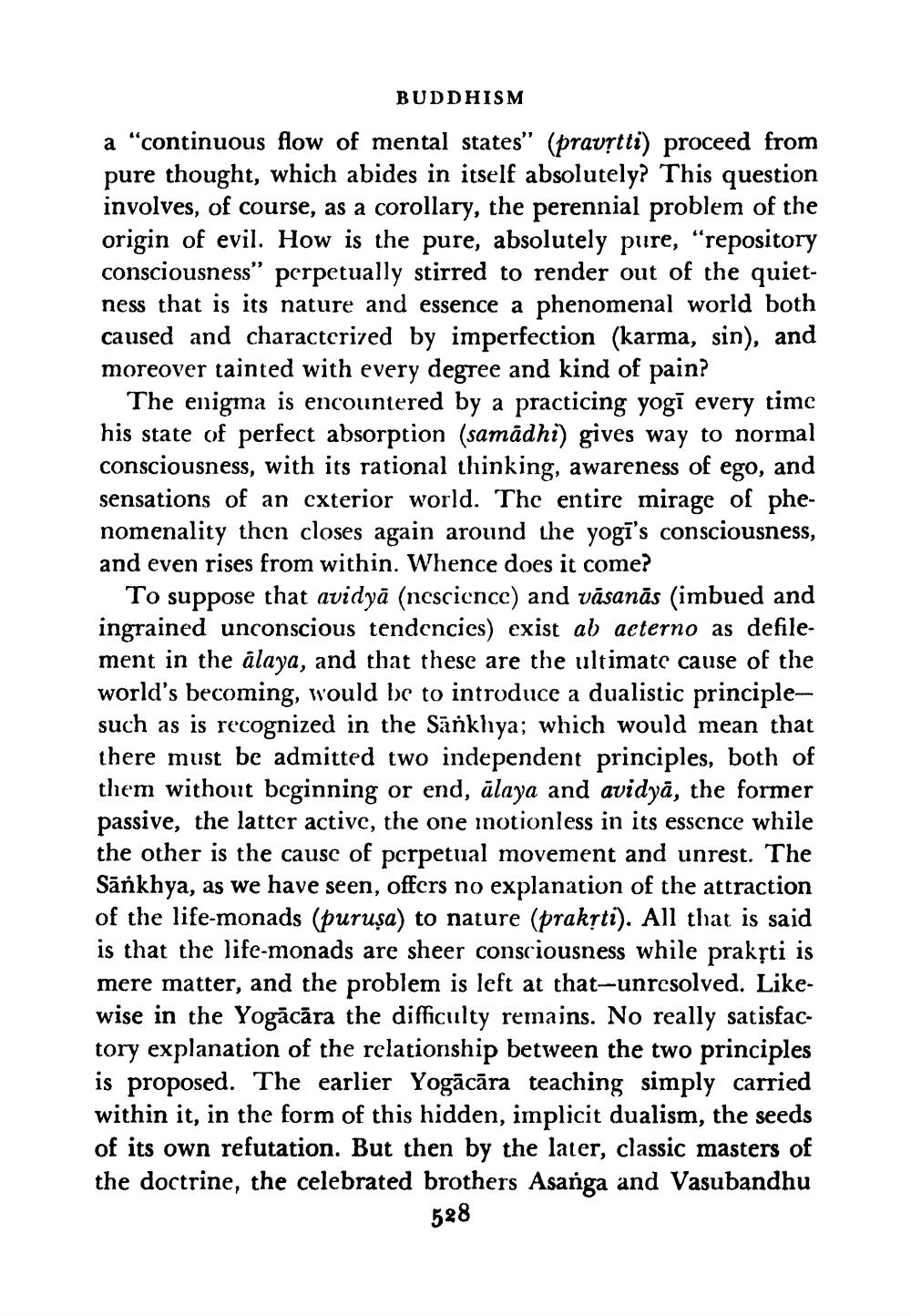________________
BUDDHISM
a "continuous flow of mental states" (pravstti) proceed from pure thought, which abides in itself absolutely? This question involves, of course, as a corollary, the perennial problem of the origin of evil. How is the pure, absolutely pure, “repository consciousness” perpetually stirred to render out of the quietness that is its nature and essence a phenomenal world both caused and characterized by imperfection (karma, sin), and moreover tainted with every degree and kind of pain?
The enigma is encountered by a practicing yogi every time his state of perfect absorption (samadhi) gives way to normal consciousness, with its rational thinking, awareness of ego, and sensations of an exterior world. The entire mirage of phenomenality then closes again around the yogi's consciousness, and even rises from within. Whence does it come?
To suppose that avidyā (nescicnce) and vāsanās (imbued and ingrained unconscious tendencies) exist ab aeterno as defilement in the alaya, and that these are the ultimate cause of the world's becoming, would be to introduce a dualistic principlesuch as is recognized in the Sankhya; which would mean that there must be admitted two independent principles, both of them without beginning or end, ālaya and avidyā, the former passive, the latter active, the one inotionless in its essence while the other is the cause of pcrpetual movement and unrest. The Sāňkhya, as we have seen, offers no explanation of the attraction of the life-monads (puruṣa) to nature (prakrti). All that is said is that the life-monads are sheer consciousness while praksti is mere matter, and the problem is left at that-unresolved. Likewise in the Yogācāra the difficulty remains. No really satisfactory explanation of the relationship between the two principles is proposed. The earlier Yogācāra teaching simply carried within it, in the form of this hidden, implicit dualism, the seeds of its own refutation. But then by the later, classic masters of the doctrine, the celebrated brothers Asanga and Vasubandhu
528




